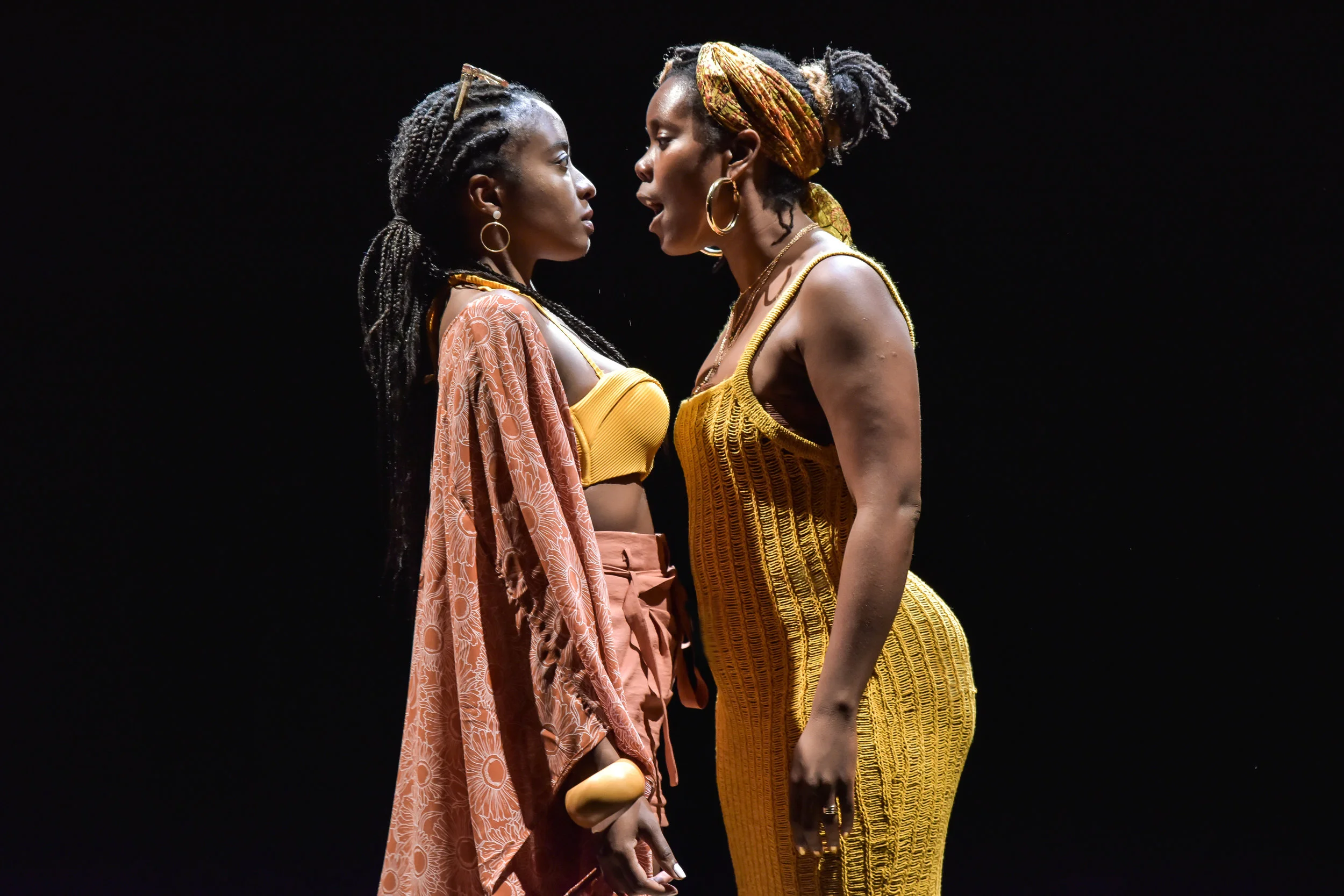trade: the transactional nature of being
In this New Perspectives production of debbie tucker green’s trade, the playwright’s cogent, poetic voice leaps onstage to tell a story about women, transactional relationships, and sex tourism.
I met with the three-woman cast at the Carriageworks Theatre in Leeds. Gracy Goldman, Rachel Summers, and Sharla Smith share reverence for debbie tucker green’s writing, admitting that they line-run religiously in order to capture every scripted stammer or interjection. With a playwright like this, Rachel explains, “if you stay loyal to [the script] then the intention, the feeling, just comes out.”
Onstage, the mischievous assonance between each part unites otherwise rapidly switching perspectives. The script returns often to the motif of being both here and there, signalling a persistent conflict between the status of each character as either a local or tourist. Though worlds apart, when they arrive in one another’s here or there, their impact is intrinsic.
“I think the play is ultimately about the local perspective, and it’s about the black woman’s voice,” Sharla tells me. “We have a perspective on what an older white woman gets up to [on holiday] in Jamaica.”
LOCAL (Sharla), REGULAR (Gracy), and NOVICE (Rachel), are each strikingly different; different in age, different in economic and social class, and all voicing their differences with fervour. Even so, “it has to work as a unit,” Gracy tells me.
They are all onstage from start to finish. There are no set changes, very few silences, and staging consists simply of three crates bathed in a warm light that invokes the Caribbean sun. Under such Brechtian circumstances, the audience is entirely reliant on the skill of these three women to navigate them through the fast-paced narrative. It is a feat managed with sensitivity - and incisive humour.
Photography by Robert Day
Sharla likens the cast’s connection to that of “an orchestra”, in which each musician plays their own part but is constantly listening to the whole. As a result, despite the fractiousness of the dialogue, the energy of their back and forth is one of synthesis. This is what trade does well; illuminates the transactional nature of being. Only these women’s privilege, and self-delusion, prevents them from truly seeing their relationships with each other.
“What’s interesting is how different we are on paper [...] but as heterosexual women who want to be loved, the vulnerability we share is one and the same thing,” Sharla remarks. As LOCAL, she goads REGULAR and NOVICE, who are white women, into examining their relationships with a black male sex worker from the island. The audience is forced to reconcile their own behaviour as tourists, as white, or as British, in the unforgiving mirror that LOCAL holds up. None of them are being let off the hook in the name of feminism, either. This is not a celebration of white female sexuality at the expense of black men.
The choice to have black women play white characters is one written into trade by the playwright. For Gracy, this is a necessity for a script in which a single actor is required to switch from a British accent to a Jamaican one. Portraying a white woman through the perspective of blackness affords the piece a subversiveness that wouldn't exist were it white actors playing black characters. It's "part of the fun," Sharla says. "[It's] poking fun at that history of theatre where white people are blacking up."
Despite pervasive finger-pointing between all three characters, there is a sensitivity to this play, and a vulgar hilarity, that gives the audience no choice but to empathise with the voices heard. "What [debbie tucker green] does a good job of is making you reassess the stereotype [...] and think these are human beings with these vulnerabilities,” Rachel tells me. Gracy agrees, “you’ve got to love your character”.
When these women perform, their compassion for each part is clear. Exploring the occasionally sordid and lonely world of sex tourism, trade is a warm, boisterous experience delivered with remarkable tenderness.
With their final performance on 19th October, you’ll have to move fast if you want to catch trade onstage. For tickets click here.
Find out more about New Perspectives Theatre.
All photography is by Robert Day, sourced via New Perspectives Theatre.






